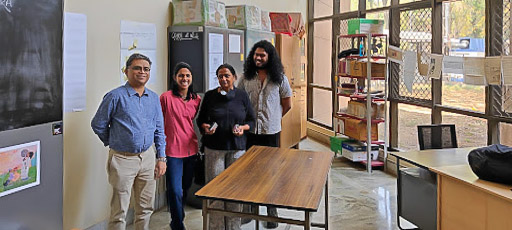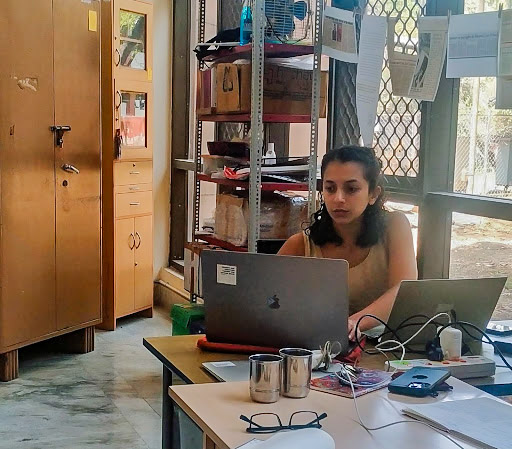QAMRA Archival Project at NLSIU welcomes Pawan Dhall as Archivist
15 March 2022
We are happy to announce that Pawan Dhall, queer activist, archivist, researcher and writer, will be joining QAMRA Archival Project at NLSIU. Founder of Counsel Club, Kolkata (1993-2002), one of India’s earliest queer support groups, his experience with the movement and expertise with archiving will be a valuable addition to the project.

“I’m happy and privileged to join the team at QAMRA. As a queer activist and archivist, I look forward to a new chapter of learning, preserving and researching. QAMRA is the first scientifically planned queer archiving initiative in India, and promises to add historical depth to research and advocacy on queer issues in India.”
– Pawan Dhall
As we look forward to working with Pawan, the team reflects on the past year of work at QAMRA. For Jayashree who has been instrumental in setting up the archive, the organic nature of QAMRA’s evolution will always be remarkable. “Through a coming together of minds and material, we really just stumbled into this exercise of creating an archive. I feel very fortunate for this opportunity to learn the skills of archiving. Hopefully this is only the beginning” she says.
Having spent over a year working at the archive, Siddarth remarks, “Each time I remember that QAMRA will outlive all of us, my entire approach to it changes.” Be it the crisis cases in Sangama’s collection or the annotations on litigation papers in the Sec. 377 series, trying to see what each item can bring to the wider discourse has been a central part of their process. In their own words, “the excitement is really about having fallen in love with histories and historiographies.”
Reflecting on her work with the video material, Shalom says “The more I engage with QAMRA and hear individuals talk about their involvement in the movement, the more I realise that as a young queer person in this country, I owe so much to each and every one of them.” For her, archiving these histories and learning what she can from them seems like the least one could do in return.
As Yamuna completes her final month with us, we’d like to thank her for her brief but timely input. Facilitating the move to NLSIU and handling our entire communications for this period could not have been an easy task. “I began my work at a time when various threads of QAMRA’s history were coming together in beautiful ways,” she says, “I’m struck by the way people speak about the archive, their commitment can really be infectious. I look forward to taking this new understanding of history with me and making it a continued part of my learning.”
As we look forward to working with Pawan, the team reflects on the past year of work at QAMRA. For Jayashree who has been instrumental in setting up the archive, the organic nature of QAMRA’s evolution will always be remarkable. “Through a coming together of minds and material, we really just stumbled into this exercise of creating an archive. I feel very fortunate for this opportunity to learn the skills of archiving. Hopefully this is only the beginning” she says.
Having spent over a year working at the archive, Siddarth remarks, “Each time I remember that QAMRA will outlive all of us, my entire approach to it changes.” Be it the crisis cases in Sangama’s collection or the annotations on litigation papers in the Sec. 377 series, trying to see what each item can bring to the wider discourse has been a central part of their process. In their own words, “the excitement is really about having fallen in love with histories and historiographies.”
Reflecting on her work with the video material, Shalom says “The more I engage with QAMRA and hear individuals talk about their involvement in the movement, the more I realise that as a young queer person in this country, I owe so much to each and every one of them.” For her, archiving these histories and learning what she can from them seems like the least one could do in return.
As Yamuna completes her final month with us, we’d like to thank her for her brief but timely input. Facilitating the move to NLSIU and handling our entire communications for this period could not have been an easy task. “I began my work at a time when various threads of QAMRA’s history were coming together in beautiful ways,” she says, “I’m struck by the way people speak about the archive, their commitment can really be infectious. I look forward to taking this new understanding of history with me and making it a continued part of my learning.”
